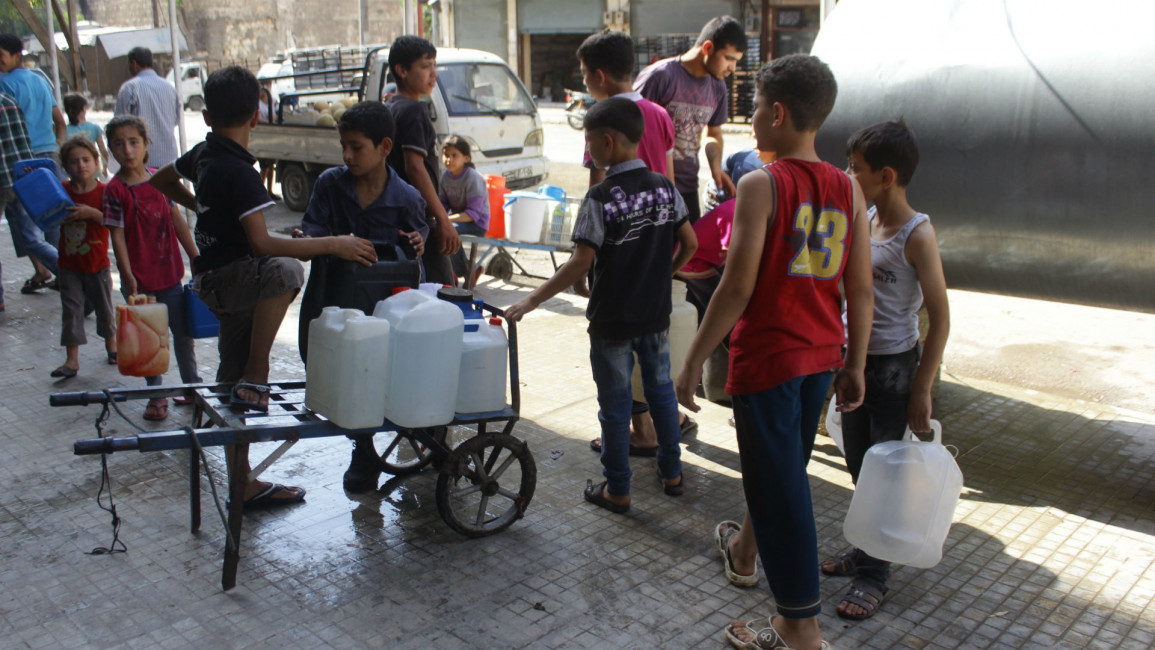Syria: Water being used as a tool of war
Warring parties in the Syrian conflict are using water for political and military gains, said the United Nations Children's Fund in a press release on Tuesday.
Supplies have been cut deliberately sometimes for long periods in recent months. This has affected up to five million people in cities and communities across the country, including 2.3 million in Aleppo, 2.5 million in Damascus and 250,000 in Deraa.
The situation has been exacerbated by this summer's heat wave.
UNICEF called for urgent action to be taken to remedy the situation.
"Clean water is both a basic need and a fundamental right in Syria as it is anywhere else," reminded Peter Salama, UNICEF Regional Director for the Middle East and North. "Denying civilians access to water is a flagrant violation of the laws of war and must end."
Water availability is about 50 per cent less than it was before the conflict began, and UNICEF has recorded 18 deliberate attempts to cut water in the northern city of Aleppo alone so far this year.
| Denying civilians access to water is a flagrant violation of the laws of war and must end. - Peter Salama, UNICEF |
Fighting has caused severe damage to pipelines and other water infrastructure and prevented repairs. For example, Aleppo's main pumping station has been crippled and taps have been left dry in some parts of the city for months at a time.
Children are often sent out to collect water from standpipes or collection points. However, this can be fatal due to ongoing fighting, and at least three children have been killed collecting water so far in Aleppo.
Water shortages also increase the incidence of disease, with many being forced to rely on dirty water from unregulated and unprotected sources. This has caused an increase in illnesses such as diarrhoea, typhoid and hepatitis.
Prices have also increased, for example in Aleppo they have gone up by 3000 per cent at a time when many are finding it even harder to pay their bills.
In addition, regular power cuts have made it even harder for water to be pumped into homes.
Some parts of the country receive only one hour of electricity a day, and sometimes cuts can last for up to four days.
Furthermore, like the rest of the region, Syria has been suffering from the worst heat wave in decades, with temperatures in Aleppo exceeding 40 Celsius.
Therefore, UNICEF is asking all sides in the conflict to take urgent steps to stop water being cut and to protect engineers trying to repair supplies.



